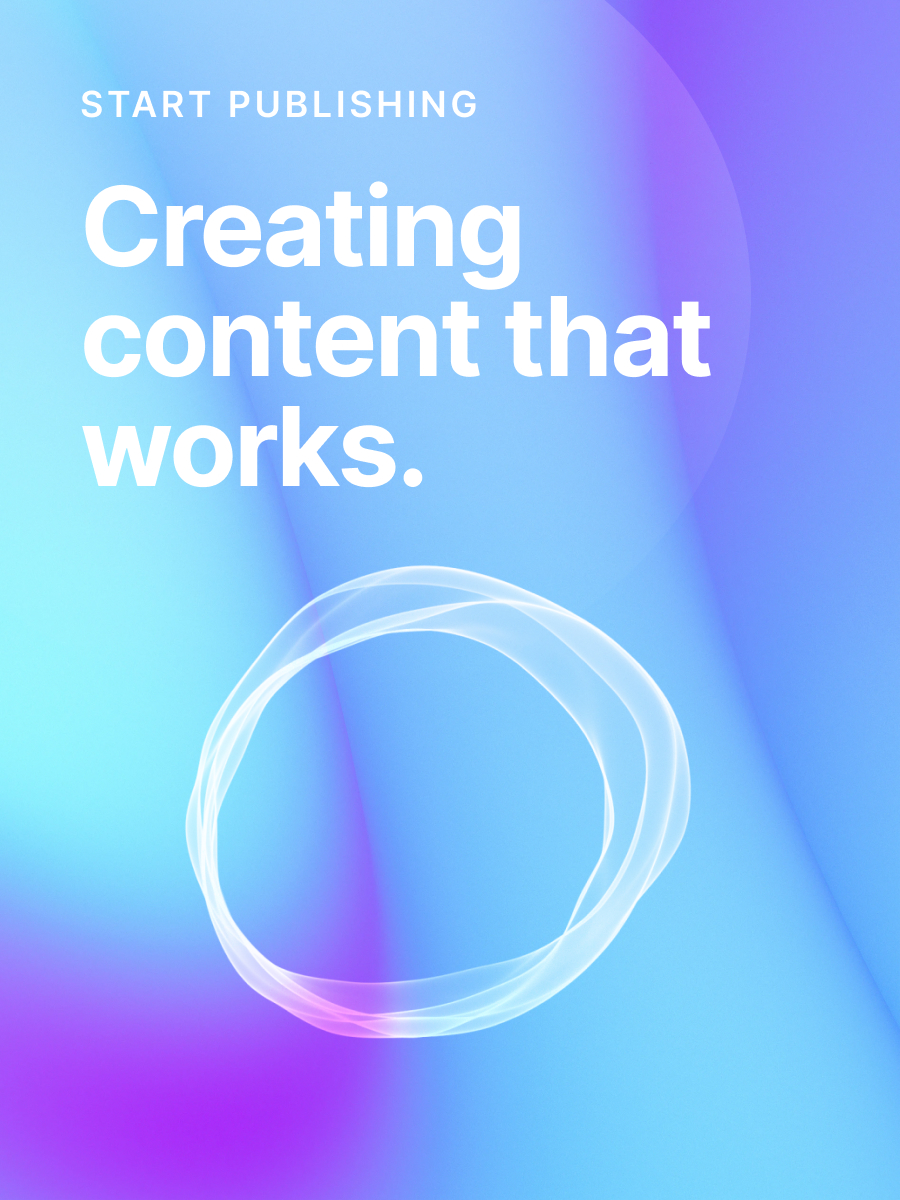🕵️ Optimizing for search engines
If you grew up being the middle child, you know what it's like to go unnoticed. If you've spent a ton of time creating great content that never appears in Google, it can feel like you're the middle child of the publishing world. That changes today, kid. This week's newsletter is about learning the basics of Search Engine Optimization, utilizing its advantages, and sharpening your writing techniques to work in your (and Google's) favor. Let's go!
In this week's issue 📨
- A beginner's guide to Search Engine Optimization
- Ten benefits of SEO
- How to create search-optimized content
Was this email forwarded to you? Subscribe here!
SEO basics

Search Engine Optimization (SEO) aims to increase organic traffic to your publication by making it more relevant and authoritative to search engines (Google). These factors can include site speed, the number of backlinks, and the relevancy of words and phrases. With a bit of time and patience, you can harness the power of SEO to help you achieve sustainable growth.
Let's take a deeper look at how to get started with SEO so that you can boost your brand and drive conversions.
Content
- Focus on writing for humans and start with what you already know by generating a list of content ideas that will excite your target audience. You don't want to start writing for what you think the Google Gods™ want you to write. The more real and unique your content is, the better your results will be.
- If you're having trouble coming up with content ideas, ask yourself what problems need to be solved, consider what you have the most authority to write about, and think about what your audience is most interested in. You can also look at revisiting your existing content that can be optimized.

Platform
- The technical aspects of SEO (XML sitemaps, custom metadata, and canonical tags) should be handled for you when choosing a platform so that you can keep creating great content. All of your needs should be met without using additional plugins or downloads.
- If you want your publication to perform well in site performance audits, you'll want to use a well-designed theme, optimize your images, limit the use of external scripts, and reduce redirects. Overall, a good page speed for SEO hovers around three seconds or less.
Keywords
- Research the keywords you'll target by finding out what keywords people are already using so you can aim for the low-competition variety. This will help you understand what people are looking for when using specific search inquiries and allow you to discover your competition.
- Consider investing in an SEO tool to help you do this research. In our humble opinion, Ahrefs has the best tools in the industry for auditing your website, performing competitor research, and conducting keyword research. Plenty of free SEO tools are out there, so take your pick!
Monitor
- Now, it's time to wait and monitor your long-term results using tools like Google Search Console, which will help you measure your site's traffic performance. The useful Search Results report will show you how many impressions and clicks you get from Google.
- Expect to be monitoring for the long term and continue to check in weekly to keep an eye on your metrics. For new publications, it can take up to a year or longer for Google to start ranking and recommending your site, so keep focusing on producing the highest quality content possible.

Iterate
- Iterate when your results appear, notice what keywords your content is ranking for, and adapt as necessary. Keep your content fresh, add internal links to your publication when appropriate, and attract external backlinks. Then, start the SEO process all over again with new ideas.
- Following your creativity is the best way to keep SEO sustainable. Do some research, take informed bets on keywords that may drive success, and use the free traffic you gain from Google to your advantage. Remember: Start small, wait, and then iterate.
Interesting stories & ideas 📚
- Every writer should read this – VeryGoodCopy
- Stop being impatient and trust the process – Jodie Cook
- The indiscipline of overwork – Ryan Holiday
- Editors, don't hire anyone over 35 – Media Makers Meet
- Death of the personal essay – Vague Blue
SEO advantages

Google sees billions of searches daily, many representing your publication's potential visitors, readers, and subscribers. So, how do you get noticed in an endless sea of other sites without paying for ads or spamming the socials? This is where Search Engine Optimization comes in.
Connor Lahey, content strategist at Semrush, gives us ten benefits showcasing the importance of SEO.
#1 Organic search is one of the highest website traffic sources; SEO traffic can become your primary source.
#2 SEO is more cost-effective than other avenues, like paid social. Investing in SEO helps grow your results over time without continued ad spending.
#3 You can occupy more real estate on Google if you decide to combine SEO with paid marketing, which can generate more clicks.
#4 Frequently appearing in search results builds trust, credibility, and recognition for your brand. Good SEO shows experience and expertise.
#5 SEO connects you with a potential subscriber throughout their entire customer journey so that you can help move them towards your brand.

#6 SEO is continuously scalable when it comes to customer acquisition. As long as you keep creating, it will continue to drive output.
#7 Your marketing performance will improve using SEO best practices like quality site UX and high-quality content.
#8 You'll stay connected to the front lines of trends or consumer behavior changes with SEO keyword research.
#9 SEO makes it easy to gauge your performance and determine whether you should change your publication or specific content.
#10 You can blaze past the competition by using SEO to identify subjects around which to create new content. Staying relevant is a must!

SEO writing

You've learned the basics of Search Engine Optimization and understand its benefits, but how do you ensure that your writing is written to rank? SEO writing is all about planning, creating, and optimizing your content with your Google ranking in mind.
Si Quan Ong, marketing educator at Ahrefs, guides us through the process of writing for SEO to ensure your high-quality content is seen.
‣ Research winning keywords that you can inject into your content to rank high and gain traffic. If nobody cares for what you're writing about, they won't be searching for it.
‣ Discover what searchers want by aligning your content with their search intent. Try Googling your target keywords to see t0p-ranking examples. This will show what searchers are looking for and how they want the content presented.
‣ Make your content unique and deliver new information. Write from experience, do deep research, interview experts, and give your opinions. Creating high-quality content isn't easy, or everyone would do it.
‣ Mock up a publishing outline to help you plan what you want to say, prevent writer's block, and speed up your writing process. If you've followed the previous steps, you already have everything you need for a straightforward outline.

‣ Generate a draft to allow you to write freely without worrying about perfection. Consider creating your draft in a more public place like Google Docs so you can easily collaborate with your team.
‣ Ask for feedback from your team to help with any inaccuracies and inconsistencies. If you already have an established audience, consider contacting them for their thoughts. Your Google rank will love you for it.
‣ Create captivating titles and meta descriptions to entice searchers into clicking on your page. Titles and descriptions are the first thing they see when Googling, so you want to draw them in immediately.
‣ Add internal links to published posts that lead to other posts to make your site more user-friendly. This also helps Google crawl your new page to understand what your content is all about.
Curator's pick ✍️

Enjoy this newsletter? Forward to a friend or hit reply to share your thoughts. We don't bite! 👻
Want more how-tos? Search our library of tutorials and subscribe to our monthly "Build with Ghost" newsletter.
Join our Ghost Creator Community! Connect with like-minded people who create content professionally — apply here.






